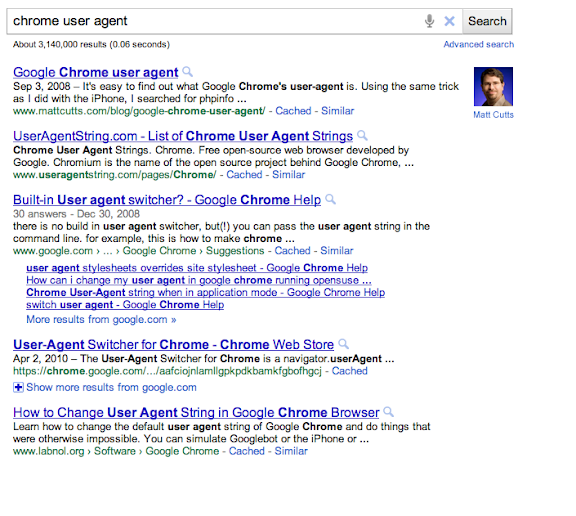As you’re probably aware by now, yesterday Google announced its Google+ social network. A key part of every social network is a user’s personal profile page, the “social object” that other people can actually connect to.
Google has offered personal profile pages for some time, (here’s my rather basic Google Profile: Tony Hirst), but they’ve never really been a part of anything, and they’re not really linkable to – which means there’s little reason for PageRank based search algorithms such as Google’s to return Google Profile pages in the top results for you if anyone ever searches for you.
(PageRank is the algorithm that gave Google its early edge in the search engine wars; links from one page to another count as “votes” regarding the quality of the page that is linked to. Crudely put, if people link to you, those links contribute to your PageRank and you’re more likely to make it to the top of a search results page.)
Until now, that is (or at least, until a couple of weeks ago… I missed this announcement at the time it was made…): Authorship markup and web search, a technique for “supporting markup that enables websites to publicly link within their site from content to author pages”.
The method is described as follows:
To identify the author of an article, Google checks for a connection between the content page (such as an article), an author page, and a Google Profile.
A content page can be any piece of content with an author: a news article, blog post, short story …
An author page is a page about a specific author, on the same domain as the content page.
A Google Profile is Google’s version of an author page. It’s how you present yourself to the web and to Google.
…
In confirming authorship, Google looks for:Links from the content page to the author page (if the path of links continues to a Google Profile, we can also show Profile information in search results)
A path of links back from your Google Profile to your content.
These reciprocal links are important: without them, anyone could attribute content to you, or you could take credit for any content on the web.
….
The rel=”author” link indicates the author of an article [so for example: <a rel=”author” href=”https://profiles.google.com/tony.hirst/”>Google Profile: Tony Hirst</a>]
Source: Authorship
Here’s why you might be tempted to do this…:
Many of you create great content on the web, and we work hard to make that content discoverable on Google. Today, we will start highlighting the people creating this content in Google.com search results.
As you can see …, certain results will display an author’s picture and name — derived from and linked to their Google Profile — next to their content on the Google Search results page.
Source: Highlighting content creators in search results; [my emphasis]
So… if you want to assert authorship and be recognised as the author in the Google search results, you need to start linking all your content back to your Google Profile Page…
…and so start feeding PageRank juice to your Google profile page…
…so that when folk search for you on the web, they’re more likely to see that page…
This is a harsh reading, of course: authorship can also be asserted by linking within a domain to a page that you have asserted to Google that represents you: The rel=”author” link indicates the author of an article, and can point to .. an author page on the same domain as the content page: Written by <a rel="author" href="../authors/mattcutts">Matt Cutts</a>. The author page should link to your Google Profile using rel=”me”.
(I wonder why <link rel=”author” href=”../authors/mattcutts”/> isn’t supported? Or maybe it is?)
Algorithmically, the assertion of authorship might also help in Google’s fight against spamblogs, which republish content blindly from original sources. That is, by asserting authorship of a page, if someone reposts your content, google will be able to identify you as the original author and return a link back to your page in the search results listing, rather than the republished page.
I imagine there might also be personal reputation benefits – for example, if people +1 a page you have claimed authorship of, it might give you a “Reputation Rank” boost for the subject area associated with that page?

right, so when can organisations have profile pages so that it’s easy for searchers to see (not just from URL) that a page is created by the open university (for eg)? Cos you probably want to avoid those kind of pages ;-)